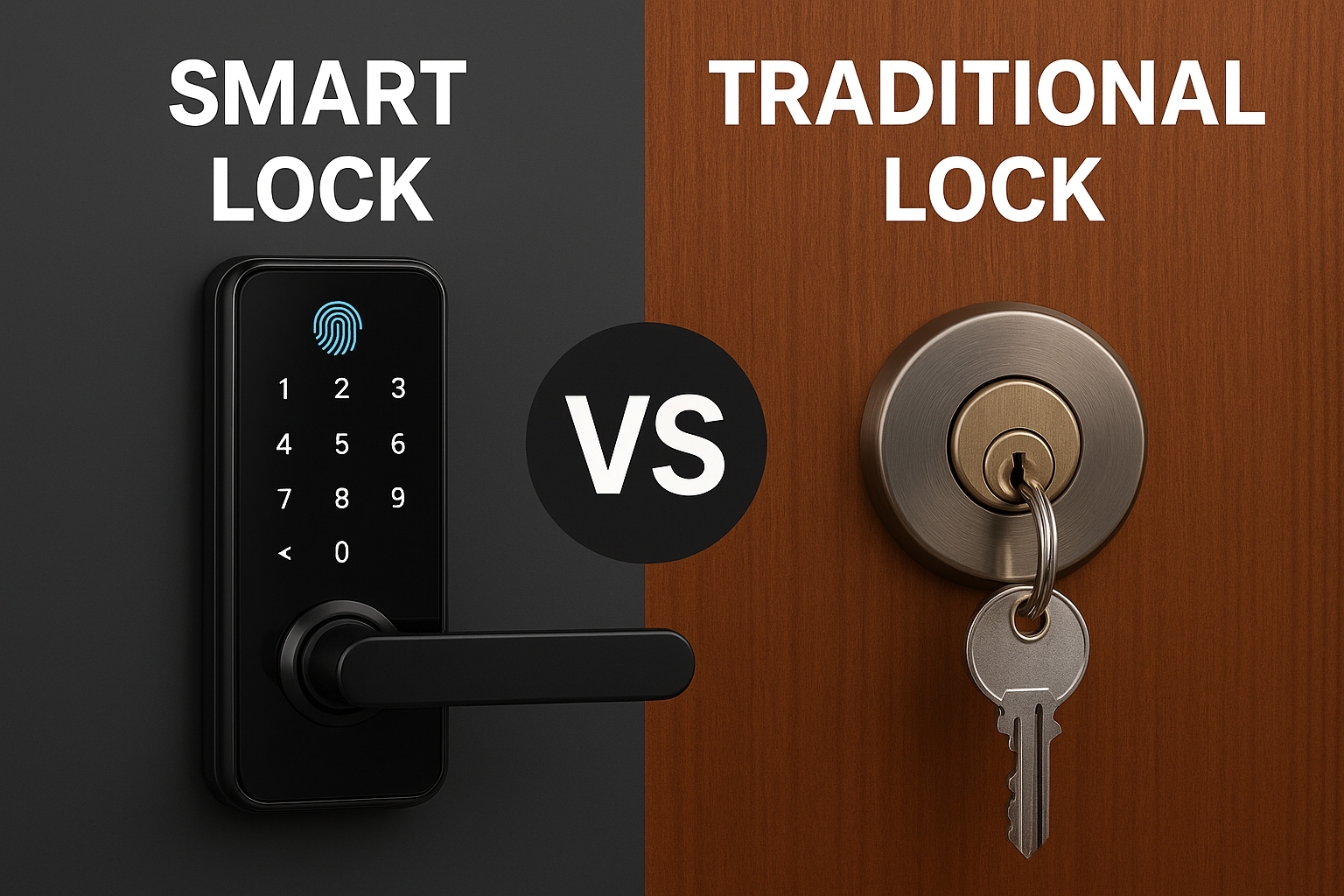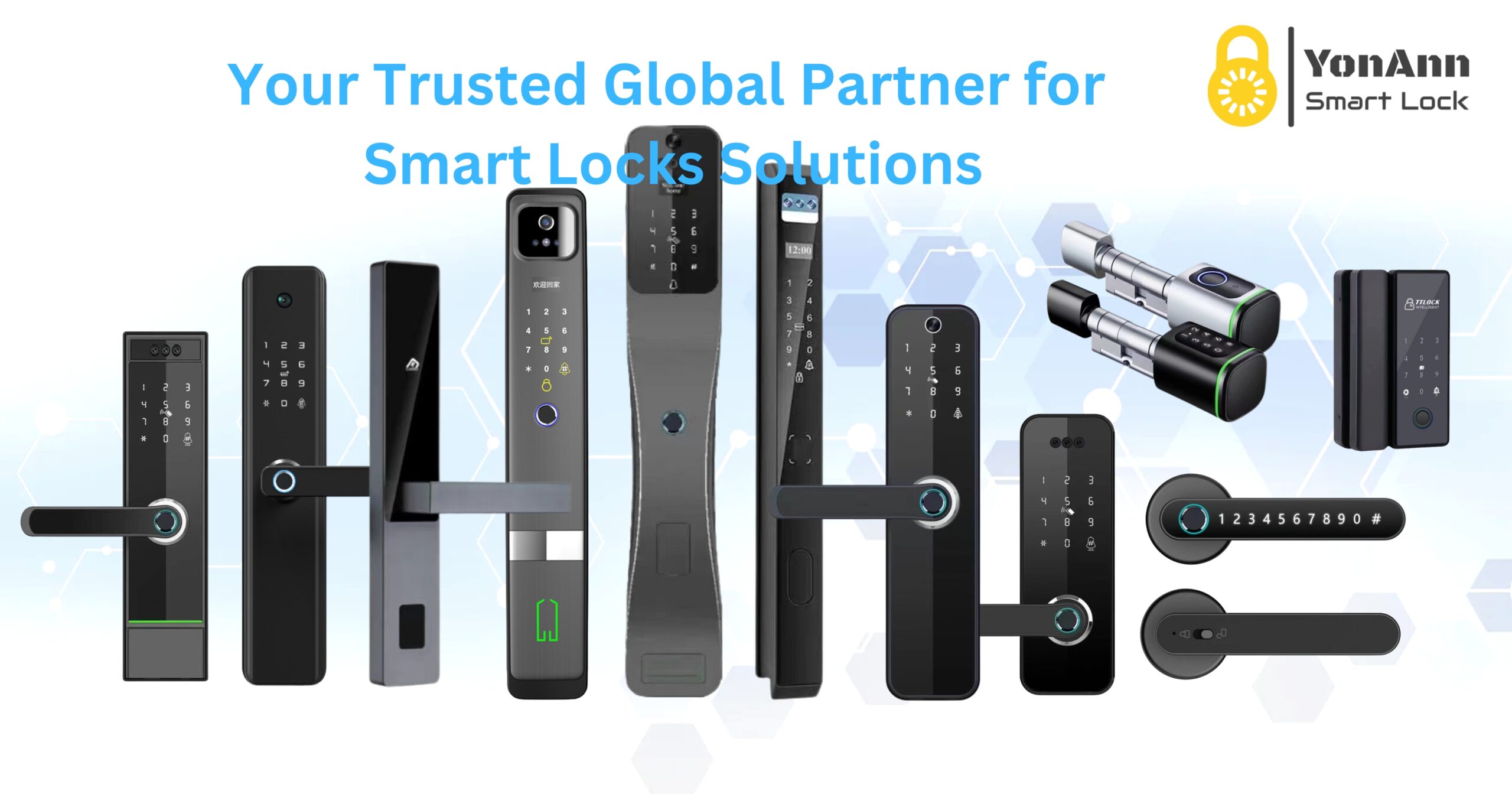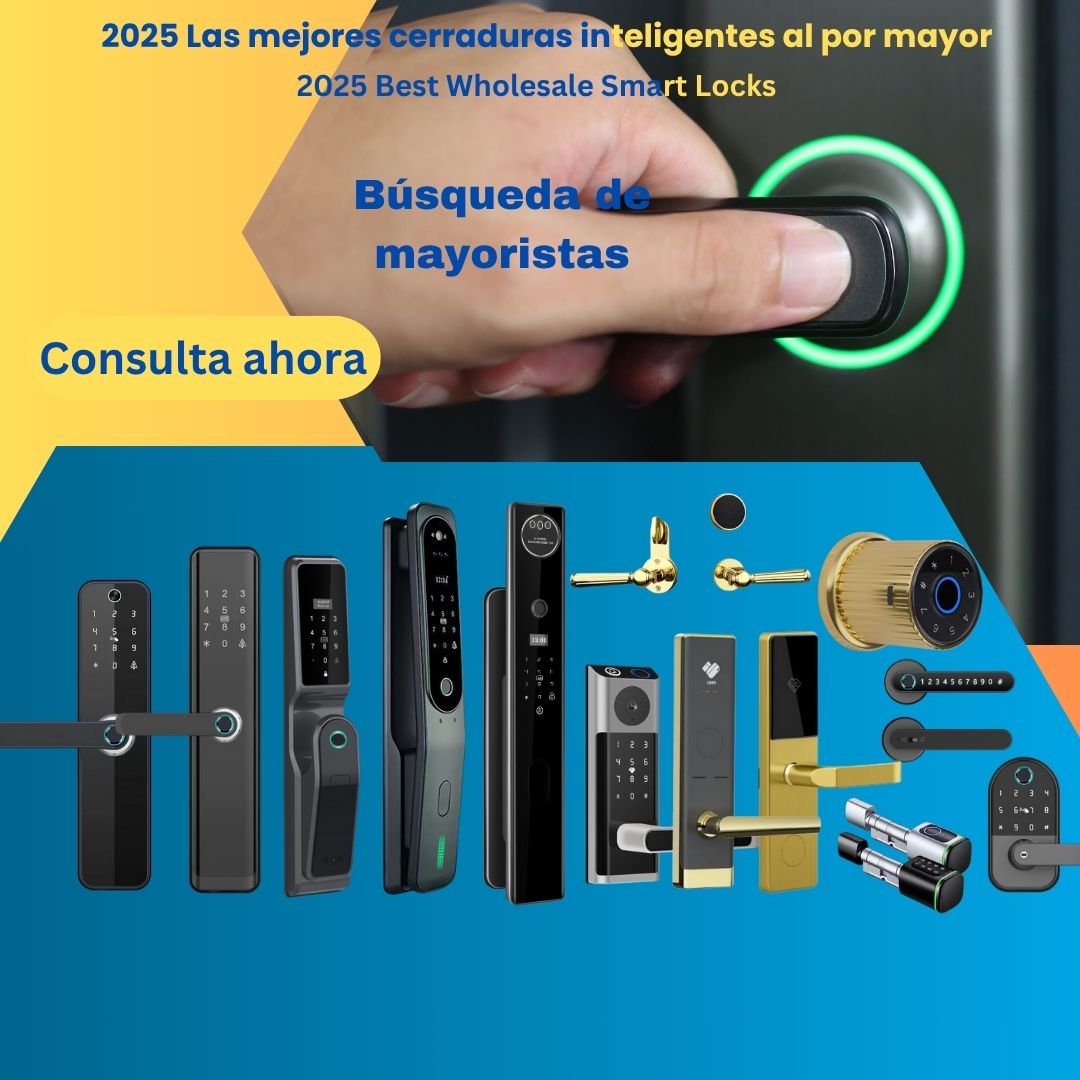
Trong bối cảnh an ninh không ngừng biến đổi, cuộc tranh luận giữa khóa thông minh và khóa truyền thống chưa bao giờ nóng hơn lúc này. Khi các hộ gia đình, khách sạn và doanh nghiệp chuyển sang tự động hóa và hệ thống điều khiển thông minh hơn, quyết định nâng cấp lên khóa thông minh hay tiếp tục sử dụng khóa cơ truyền thống ngày càng trở nên quan trọng.
Cẩm nang Toàn diện này của YonAnn sẽ khám phá những điểm khác biệt chính giữa khóa thông minh và khóa truyền thống — xét về tính bảo mật, chi phí, sự tiện lợi, ứng dụng thực tế và tiềm năng trong tương lai. Nếu bạn đang băn khoăn không biết loại khóa nào phù hợp với lối sống hoặc nhu cầu kinh doanh của mình vào năm 2025, thì cẩm nang toàn diện này chính là dành cho bạn.
-
Khóa thông minh và khóa truyền thống là gì?
Khóa thông minh là hệ thống khóa cửa thông minh cho phép mở cửa không cần chìa khóa bằng các công nghệ như Bluetooth, Wi-Fi, cảm biến vân tay, thẻ RFID hoặc ứng dụng di động. Chúng thường chạy bằng pin và có thể kết nối với hệ thống nhà thông minh. Nhiều khóa thông minh từ các hãng hàng đầu nhà sản xuất khóa thông minh ở Trung Quốc, các công ty như YonAnn hỗ trợ truy cập từ xa, mã tạm thời và theo dõi hoạt động theo thời gian thực.
Khóa truyền thốngNgược lại, chúng dựa vào các cơ cấu cơ học như khóa chìa và ổ khóa hoặc khóa chốt. Những loại khóa này đã được sử dụng hàng trăm năm và vẫn phổ biến nhờ tính đơn giản, chi phí thấp và dễ lắp đặt.

Các loại khóa thông minh phổ biến
Các loại khóa truyền thống phổ biến
-
Khóa chốt chết
-
Khóa chốt
-
Khóa núm và khóa cần gạt
-
Khóa móc
-
Sự khác biệt cốt lõi giữa khóa thông minh và khóa truyền thống
| Tính năng | Khóa thông minh | Khóa truyền thống |
| Phương pháp truy cập | Ứng dụng di động, mã PIN, dấu vân tay, RFID | Chỉ có chìa khóa vật lý |
| Bảo vệ | Sinh trắc học, mã hóa, nhật ký | Bảo vệ cơ học cơ bản |
| Sự tiện lợi | Truy cập từ xa, nhiều người dùng | Chìa khóa phải được mang theo |
| Nguồn điện | Chạy bằng pin | Không có (thủ công) |
| Tích hợp | Tương thích với nhà thông minh | Không tích hợp |
Khóa thông minh phát huy tác dụng trong các tình huống nhiều người dùng và môi trường xa xôi, trong khi khóa truyền thống vẫn là giải pháp đơn giản cho các khu vực ít người qua lại hoặc không cần đến các tính năng thông minh.
-
So sánh bảo mật
An ninh là lý do chính khiến mọi người đầu tư vào khóa. Sau đây là so sánh giữa hai loại khóa:
🔐 Khóa thông minh bảo mật
-
Truy cập kỹ thuật số được mã hóa
-
Nhật ký theo dõi thời gian thực
-
Mã PIN tạm thời hoặc khóa di động
-
Tùy chọn sinh trắc học: nhận dạng vân tay, khuôn mặt hoặc tĩnh mạch lòng bàn tay
-
Khả năng thu hồi quyền truy cập từ xa
Khóa cửa thông minh YonAnn Các mô hình tích hợp xác thực đa yếu tố và nhật ký theo dõi kiểm toán, khiến chúng trở nên lý tưởng cho các môi trường nhạy cảm như khách sạn và chỗ ở chung.
🛠️ Khóa bảo mật truyền thống
-
Không có rủi ro kỹ thuật số (không có hack hoặc lỗ hổng phần mềm)
-
Dễ bị đột nhập vật lý (bẻ khóa, va chạm hoặc sao chép chìa khóa)
Phán quyết: Khóa thông minh cung cấp khả năng kiểm soát linh hoạt hơn, nhưng khóa truyền thống vẫn có thể an toàn nếu sử dụng vật liệu chất lượng cao và rãnh chìa khóa phức tạp.
-
So sánh ứng dụng: Nhà ở, Doanh nghiệp và Khách sạn
🏠 Dành cho chủ nhà
-
Khóa thông minh cho phép bạn kiểm tra tình trạng cửa thông qua ứng dụng.
-
Chia sẻ quyền truy cập với gia đình hoặc nhà cung cấp dịch vụ.
-
Nhận cảnh báo nếu có người đột nhập vào thời điểm bất thường.
Giải pháp khóa thông minh Tuya của YonAnn cung cấp khả năng tích hợp Wi-Fi và ứng dụng để đảm bảo an ninh cho ngôi nhà một cách dễ dàng.
🏨 Dành cho khách sạn
-
Thay thế khóa cơ lỗi thời bằng khóa RFID kỹ thuật số hoặc khóa PIN.
-
Dễ dàng quản lý quyền truy cập thông qua tích hợp PMS.
-
Phát hành thẻ kỹ thuật số và thiết lập thời hạn hết hạn tự động cho khách ra vào.
Truy cập trang hệ thống khóa thông minh khách sạn của chúng tôi để biết các giải pháp chuyên nghiệp phù hợp với ngành dịch vụ khách sạn.
🏢 Dành cho doanh nghiệp và kho hàng
-
Khóa thông minh giúp giảm nguy cơ sao chép chìa khóa trái phép.
-
Cung cấp quyền truy cập theo thời gian cụ thể cho nhân viên.
-
Duy trì nhật ký truy cập để nâng cao trách nhiệm giải trình.
Chi phí ban đầu
-
Khóa truyền thống: Thông thường từ $10 đến $100 cho mỗi đơn vị.
-
Khóa thông minh: Phạm vi từ $50 đến $300+, tùy thuộc vào tính năng.
Giá trị dài hạn
-
Khóa thông minh mang lại giá trị tốt hơn với khả năng giám sát từ xa, thay khóa tiện lợi và quản lý người dùng nâng cao.
Cài đặt
-
Hầu hết các loại khóa truyền thống đều dễ tự làm.
-
Nhiều khóa thông minh ngày nay cũng dễ lắp đặt, trong đó YonAnn cung cấp tùy chọn cắm và chạy.
Mẹo thưởng: Nếu bạn đang thay thế cửa gỗ đôi, khóa thông minh vân tay đôi của YonAnn là lựa chọn hoàn hảo với tính thẩm mỹ chuyên nghiệp và các tính năng mạnh mẽ.
-
Các tình huống thực tế
Nghiên cứu tình huống 1: Nhà ở gia đình
Người dùng lắp đặt khóa thông minh YonAnn hỗ trợ vân tay trên cửa trước và thêm dấu vân tay của vợ/chồng và con cái. Họ sẽ nhận được thông báo khi con cái đi học về, và có thể mở khóa cửa từ xa cho khách.
Nghiên cứu tình huống 2: Khách sạn có PMS
Một khách sạn boutique đã thay thế toàn bộ khóa cơ bằng khóa thẻ YonAnn. Việc tích hợp với hệ thống quản lý khách sạn cho phép nhận phòng nhanh chóng và thẻ tự động hết hạn.
Nghiên cứu tình huống 3: Tổ hợp văn phòng
Văn phòng thay thế toàn bộ khóa chìa tiêu chuẩn bằng khóa thông minh được quản lý thông qua TTLock. Quản lý cấp mã truy cập có giới hạn thời gian cho nhân viên giao hàng, nhà thầu và nhân viên vệ sinh.
-
Bảo trì và Tuổi thọ
Khóa truyền thống yêu cầu:
-
Bôi trơn thỉnh thoảng
-
Thay thế chìa khóa nếu bị mất
Khóa thông minh yêu cầu:
-
Thay pin (6–12 tháng một lần)
-
Cập nhật ứng dụng/phần mềm
-
Vệ sinh định kỳ cảm biến vân tay
Khóa thông minh hiện đại, đặc biệt là từ YonAnn, cung cấp cảnh báo pin và phương pháp truy cập dự phòng khẩn cấp.
-
Xu hướng tương lai và tích hợp công nghệ
Khóa thông minh đang ngày càng thông minh hơn. Dự báo thị trường cho thấy đến năm 2030, ngành công nghiệp khóa thông minh sẽ vượt mốc $12 tỷ trên toàn cầu. Tích hợp với:
-
Nhận dạng khuôn mặt hỗ trợ AI
-
Trợ lý thông minh (Alexa, Siri, Google, khóa thông minh Matter phù hợp hơn)
-
Hệ thống quản lý dựa trên đám mây
YonAnn tiếp tục dẫn đầu với tư cách là một người đáng tin cậy nhà sản xuất khóa thông minh tại Trung Quốc, với nhiều giải pháp khóa cửa thông minh ngày càng đa dạng cho mọi ứng dụng.
-
Tóm tắt ưu và nhược điểm
| Diện mạo | Khóa thông minh | Khóa truyền thống |
| Dễ sử dụng | Cao (không cần chìa khóa) | Trung bình (yêu cầu chìa khóa) |
| Tính năng bảo mật | Nâng cao (sinh trắc học, nhật ký, mã hóa) | Cơ bản đến Trung bình |
| Trị giá | Chi phí ban đầu cao hơn, chi phí quản lý dài hạn thấp hơn | Chi phí ban đầu thấp, chi phí dài hạn cao hơn |
| BẢO TRÌ | Kiểm tra pin, cập nhật phần mềm | Bảo trì vật lý (ít thường xuyên hơn) |
| Khả năng mở rộng | Lý tưởng cho khách sạn, căn hộ, doanh nghiệp | Ít linh hoạt hơn |
-
Phán quyết cuối cùng: Thông minh hay truyền thống?
Chọn Khóa thông minh nếu bạn:
-
Muốn quản lý quyền truy cập từ xa
-
Cần nhiều người dùng truy cập
-
Sử dụng các công nghệ nhà thông minh hoặc công nghệ kinh doanh khác
-
Điều hành một doanh nghiệp dịch vụ khách sạn
Sử dụng khóa truyền thống nếu bạn:
-
Ưu tiên các hệ thống cơ học đơn giản
-
Bạn có ngân sách eo hẹp không?
- Không cần ứng dụng hoặc tính năng truy cập từ xa

🔗 Khám phá thêm cùng YonAnn
-
Khóa thông minh vân tay kép

